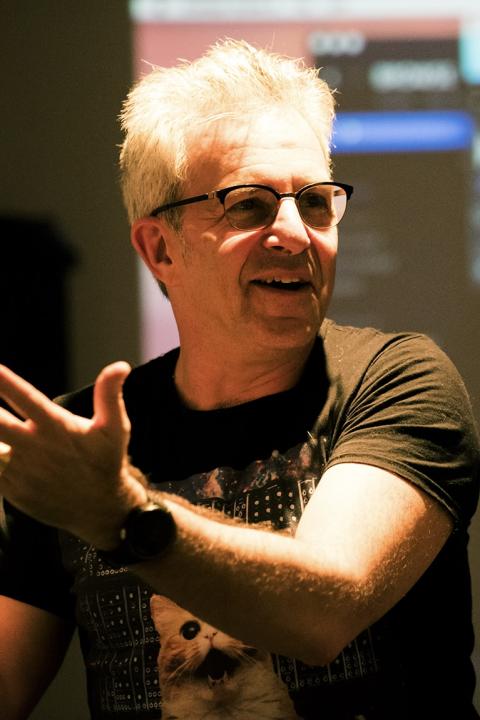Jonathan Wyner
For media inquiries, please contact Media Relations
Jonathan Wyner is a professor of music production and engineering at Berklee College of Music and head of artistic technology initiatives for BEATL, Berklee’s artist-first innovation lab for music technology. He is also the chief engineer at M Works Studios in Somerville, Massachusetts; past president of the Audio Engineering Society; and former education director for iZotope. He combines a focus on production, engineering, and education with experience as a product design consultant. His work includes leveraging technology and product innovations to create engaging experiences to creative and technical users. A producer, engineer, musician, and performer, he's mastered and produced thousands of recordings during the last 35 years. He remembers, very clearly, the time before the look ahead limiter/compressor changed the sound of music. Driving CV triggers on an ARP 2600 from his French horn in 1977 set him on a lifelong journey to discover how technology can expand our creative vocabulary.
- Instruments include the French horn, trumpet, and tuba
- Performances and appearances with the Buffalo Philharmonic, Deborah Henson-Conant, and Marvin Hamlisch
- Recordings with Jean-Claude Risset, James Taylor, David Bowie, Aerosmith, Kiri Te Kanawa, Aimee Mann, London Symphony, Miles Davis, Semisonic, Thelonius Monk, Pink Floyd, Cream, Bruce Springsteen, and Nirvana among many others
- Publications include Mix Magazine, Studio Sound, and REP
- Live recording and mix of WGBH's inaugural webcast
- Audio for interactive CD-ROM game Play It by Ear
- Surround mix/master for Disney and Weather Report
- President of the Audio Engineering Society, 2021
- Authored Audio Mastering: Essential Practices published by Hal Leonard/Berklee Press along with undergraduate and graduate courses for Berklee Online
- Recipient of a TEC Award for Best Educational Software
- Grammy nominee for Invention and Alchemy in the Best Classical Crossover Album category, 2005

